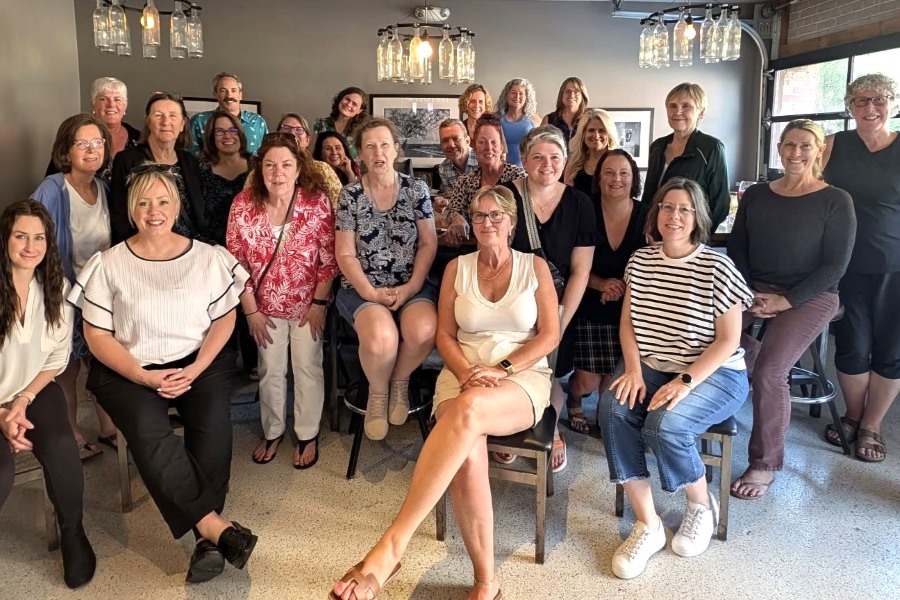The Human DNA Identification Laboratory in UNMC’s Department of Pathology, Microbiology and Immunology hosted nearly two dozen professional investigative genetic genealogists from around the country in August to work on a number of unsolved Omaha homicides.
“We have a cold case grant with the Omaha Police Department, and we have been working on seven cold case homicides for about a year now,” said Mellissa Helligso, manager of the lab. Omaha police have collected DNA evidence in the cases, but the evidentiary samples that are in the federal database (Combined DNA Index System, or CODIS) remain unidentified. The lab worked with United Data Connect, a private firm devoted to forensic investigative genetic genealogy, or FIGG, to run the samples through two other DNA databases—GEDmatch and Family Tree DNA—in hopes of finding relatives of the unidentified suspect. The next part is extremely time-consuming and involves traditional genealogy methods, such as combing through public records like birth certificates and marriage licenses, newspaper obituaries and so on.
Helligso said their lab agreed with United Data Connect that it would be helpful to get more people together to do this critical work in building out family trees. “Basically you’re trying to build the tree backwards through the grandparents, then once you identify where this evidence and the match are related, then you have to start building out all their siblings and their kids. And those kids, their partners, and then their kids. As you can imagine, the tree gets gigantic. So while these people were in Omaha, I think they added between all of the cases about 30,000 people to our trees.” Out of that number, the genealogists pored through records to come up with a much smaller list of names for investigators to follow up on – people who have some connection to Omaha or Nebraska.

“They did generate quite a few investigative leads, and those are being followed up by OPD currently,” Helligso said. “We’re waiting to hear if any of those are going to pan out.”
People paid their own way to Omaha to spend four days in late August working on the cases. The investigators—from Colorado, Florida, Washington, Wisconsin, Kansas, New Jersey, Texas, and Canada—divided into teams, each one devoted to one of the seven cases.
Joan Hanlon, senior genealogist with United Data Connect, invited genealogists that had gone through FIGG training with her to volunteer their time to mount this investigative effort. It’s modeled after the DNA Doe Project, a nonprofit effort started in California in 2017 to help law enforcement officials identify unclaimed human remains.
The other sponsor of the Omaha effort was Qiagen, the firm that makes the Kintelligence DNA testing kits that the lab uses. They dubbed the Omaha gathering “Kintelligence Kamp,” and Helligso said United Data Connect and Qiagen hope to hold similar events around the country.
